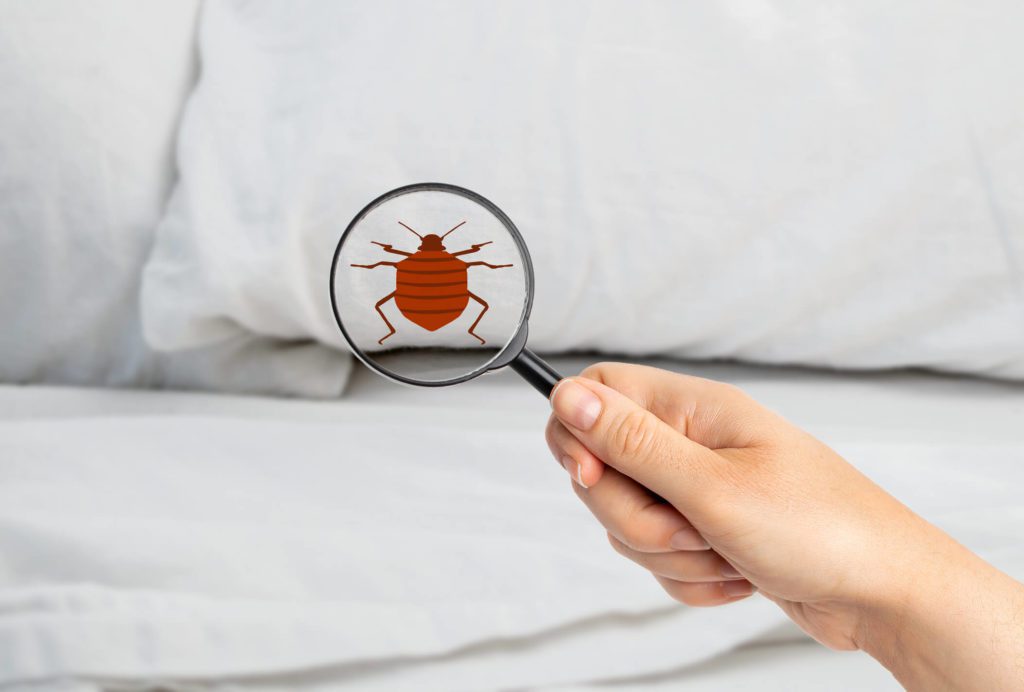Kinds of Insect Control: Which Technique Is Right for Your Problem?
When encountered with an insect problem, the selection of a proper method for insect control is essential in properly managing the circumstance. By exploring the different types of pest control techniques readily available, individuals can make educated choices tailored to their unique scenarios, ensuring a more lasting and reliable result in insect obliteration.
Chemical Pest Control
Chemical insect control includes using artificial or normally derived chemicals to handle and get rid of pest populaces properly. This approach is typically used in farming, forestry, and household setups to battle a variety of bugs, consisting of weeds, insects, and rats. Making use of chemical pesticides can give fast and targeted solutions to pest infestations, making it a popular choice for numerous individuals and companies.
One of the essential advantages of chemical insect control is its ability to promptly remove bugs, lowering the risk of damage to crops, building, and human health and wellness. By utilizing specific chemicals that target certain bugs, this technique can efficiently manage invasions while reducing damage to beneficial organisms and the atmosphere when used appropriately.
Nevertheless, using chemical bug control likewise elevates worries regarding prospective adverse results on non-target varieties, water sources, and human health. It is crucial to adhere to safety and security standards, apply chemicals responsibly, and take into consideration alternate insect control approaches to decrease these threats and make sure sustainable parasite administration techniques.
Organic Pest Control
Organic pest control, also understood as biocontrol, makes use of living microorganisms to lower and manage insect populaces normally. By using the bug's all-natural killers or virus, organic pest control uses a sustainable and environmentally friendly service to pest monitoring.

Mechanical Parasite Control
Using physical and hands-on approaches to manage parasite populaces, mechanical insect control supplies an alternate method that does not count on using living microorganisms or artificial chemicals. This method includes using obstacles, traps, or other tools to physically deter or get rid of pests. By blocking parasite entrance factors or establishing up traps to catch them, mechanical parasite control can successfully decrease problems without presenting chemicals into the setting.
One common instance of mechanical insect control is the usage of mesh screens on doors and home windows to stop pests from going into buildings. This straightforward yet efficient approach acts as a physical barrier, maintaining parasites out while enabling correct air flow. Additionally, gadgets like mousetraps, fly swatters, and ultrasonic repellents drop under the mechanical parasite control category.
While mechanical insect control approaches can be labor-intensive and call for regular tracking and upkeep, they supply a lasting and environmentally pleasant solution for taking care of bug problems. By incorporating different mechanical techniques, homeowner can produce a comprehensive bug control strategy that minimizes reliance on chemical pesticides.
Physical Insect Control

Some typical physical pest control techniques include using obstacles such as displays or nets to avoid pest entrance, catches to catch and get rid of insects, and hand-picking to literally eliminate parasites from plants or structures. In addition, methods like warm treatments can be utilized to control parasites like bed bugs by elevating the temperature to degrees that are lethal to the bugs.
Physical parasite control is particularly beneficial in integrated bug management (IPM) methods, where numerous insect control approaches are combined for effective parasite management while lessening the usage of chemicals. By utilizing physical insect control methods, people can effectively attend to parasite infestations with very little ecological influence.
Integrated Parasite Management
When carrying out physical insect control techniques as component of parasite monitoring strategies, Integrated Insect Management (IPM) YOURURL.com becomes a detailed strategy that leverages numerous techniques to effectively control pest populations. IPM focuses on long-lasting prevention of insects with a combination of biological, cultural, physical, and chemical tools customized to certain parasite problems. By integrating numerous control strategies, IPM intends to decrease the threats related to pests while also minimizing dependence on chemical solutions.
One key aspect of IPM is the focus on surveillance and evaluating pest populations to determine the most appropriate control methods. This aggressive strategy permits for very early treatment and targeted approaches, bring about a lot more effective insect management. In addition, IPM advertises eco-friendly practices by focusing on non-chemical control approaches and only using chemicals as a last resource.
Conclusion

By making use of the insect's all-natural killers or microorganisms, organic insect control supplies a lasting and eco pleasant remedy to pest management. - Kings pest control Cincinnati
Using physical and hands-on methods to insecticide for termite control handle parasite populations, mechanical pest control offers an alternate approach that does not depend on the usage of living organisms or artificial chemicals.A reliable method to managing insect populaces without depending on chemical or biological approaches includes the use of physical parasite control methods.When carrying out physical pest control approaches as part of pest monitoring techniques, Integrated Pest Administration (IPM) emerges this content as an extensive approach that leverages numerous techniques to properly manage pest populaces. Chemical insect control entails the use of chemicals, biological bug control utilizes all-natural predators, mechanical bug control entails physical barriers, physical parasite control includes capturing or getting rid of insects, and incorporated insect monitoring combines multiple techniques for a holistic technique to pest control.